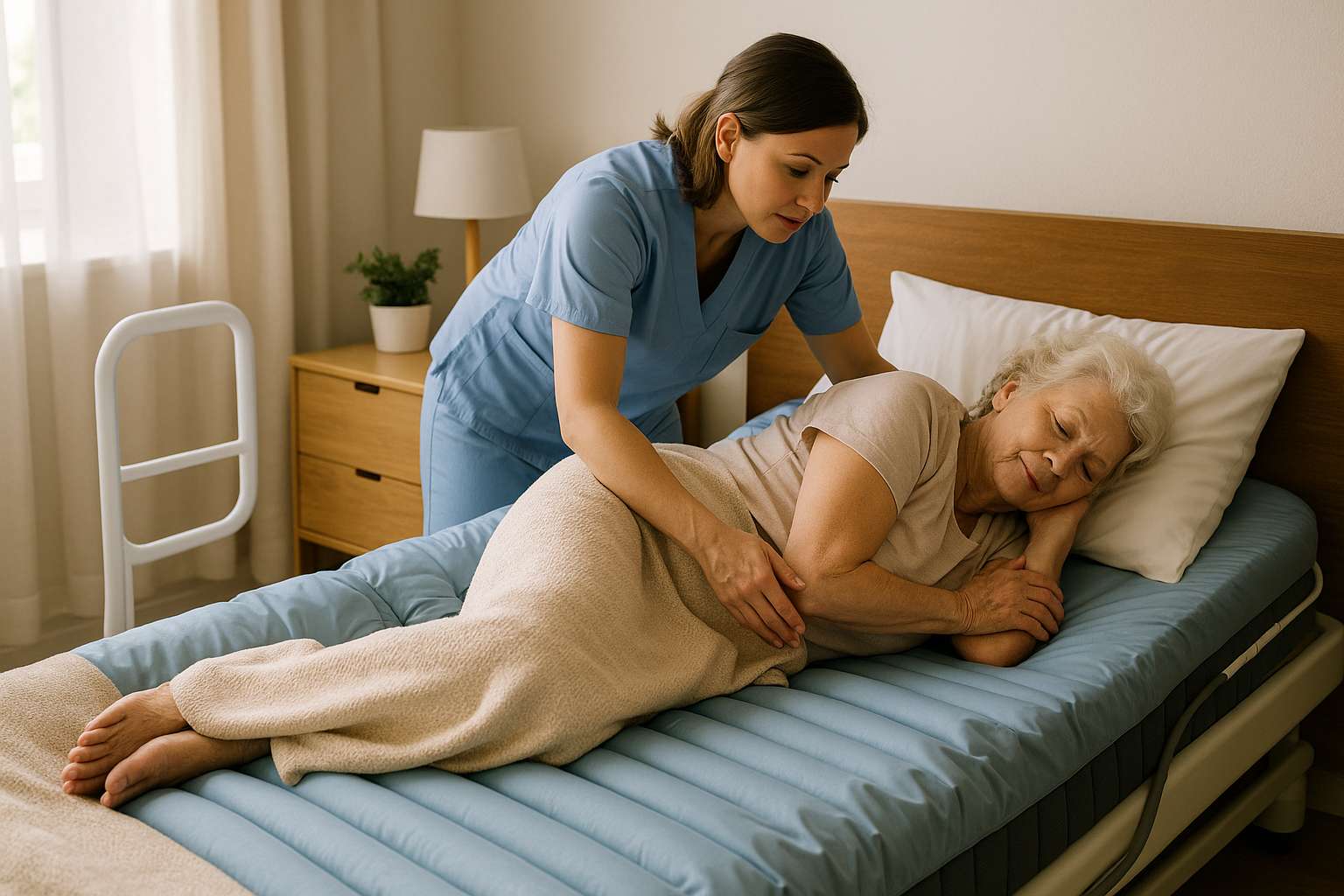Pressure injuries – What they are and how to prevent them at Home

Pressure injuries, also known as bed sores or pressureulcers, can develop quickly when someone has limited mobility or spends longperiods sitting or lying down. These wounds are painful, can take time to heal,and may lead to serious infections if not managed early.
Fortunately, most pressure injuries are preventable with theright equipment, routine care, and support from trained professionals.
Who is at Risk of Pressure Injuries?
People with reduced mobility are most at risk — particularlyolder adults, individuals living with chronic illness, and those recoveringfrom surgery or hospitalisation. The risk increases if a person is:
· Spending long periods in bed or a wheelchair
· Unable to reposition themselves independently
· Experiencing poor nutrition or hydration
· Living with incontinence or fragile skin
Where do Pressure Injuries develop?
Pressure injuries usually occur on bony parts of the bodywhere skin and tissue are compressed for long periods. Common sites include:
· Tailbone and lower back
· Hips
· Heels and ankles
· Elbows and shoulder blades
Signs of Pressure Injury
Spotting the early signs of a pressure injury makes a bigdifference. Keep an eye out for:
· Red, warm, or sore patches on the skin
· Blisters or broken skin
· Discomfort when sitting or lying in one position
· Dryness, cracking, or skin tears
If you notice any of these symptoms, it’s important to seekadvice from a nurse or healthcare professional early.
Tips to Prevent Pressure Sores at Home
With the right support, most pressure injuries can beavoided. Here’s what you can do at home:
· Reposition regularly (every 2 hours if needed)to relieve pressure
· Use pressure-relieving mattresses and cushions to protect skin
· Keep skin clean, dry, and moisturised to reducefriction and irritation
· Maintain good nutrition and hydration to supportskin health
· Check the skin daily, especially over pressurepoints
How Kinder Caring Helps
At Kinder Caring, we support pressure injury preventionthrough daily care and clinical oversight. Our care workers assist withrepositioning, hygiene, continence care, hydration, and skin checks. OurRegistered Nurses provide in-home assessments, coordinate wound care, andrecommend the right equipment and strategies to protect skin integrity.
Whether it’s preventing new injuries or managing existingwounds, we work with clients and families to keep skin healthy and promotehealing — all from the comfort of home.
Concerned about Skin Breakdown?
Don’t wait until a small issue becomes a seriousproblem. Contact Kinder Caring and find out how we can help with pressureinjury prevention and wound care that’s tailored to your needs.
